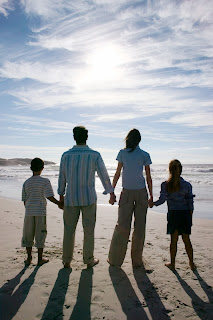 ElderCarelink had a article on 2 different kinds of home care. Click here for more.
ElderCarelink had a article on 2 different kinds of home care. Click here for more.
Sharing information & services we use for our special needs child, Will, and our elderly parents. Exploring more services & inviting others to share their stories with us.
Wednesday, April 24, 2013
Skilled vs Custodial Care.
 ElderCarelink had a article on 2 different kinds of home care. Click here for more.
ElderCarelink had a article on 2 different kinds of home care. Click here for more.
Tuesday, April 16, 2013
Parkinson's Disease.
APRIL IS PARKINSON'S AWARENESS MONTH.
Both my grandfather and now my uncle have this disease. My grandfather was diagnosed in the late 1980's (he died 1992, he was 89); my uncle within the past month. I don't remember any medication being given to my grandfather; my uncle just started on one and seems to be reacting well to it. He is also undergoing chemo treatments. Lovely combination!!!
According to the Parkinson's Disease Foundation, about 1 million Americans have the disease; 96% are diagnosed after the age of 50. It is the 14th leading cause of death according to the Center for Disease Control.
Parkinson's is not all about tremors - People with Parkinson’s disease may have other motor problems such as rigidity, issues with posture, and overall slowness of movement. Furthermore, Parkinson’s disease can cause mental and cognitive problems as well. (picture from A Place for Mom site) People with Parkinson’s may have difficulty with planning, problem solving, and other complex tasks. Parkinson’s disease is even a cause of memory loss and dementia.
(picture from A Place for Mom site) People with Parkinson’s may have difficulty with planning, problem solving, and other complex tasks. Parkinson’s disease is even a cause of memory loss and dementia.
Recently,our administration awarded money to study the brain, called the BRAIN Initiative which will hopefully develop strategies to fight Alzheimer's and Parkinson's.
There is a free toolkit you can download. For a detailed treatment with medications and therapies, take a look at Parkinson's Disease in the Elderly from the archives at the site of 'A Place for Mom'.
Both my grandfather and now my uncle have this disease. My grandfather was diagnosed in the late 1980's (he died 1992, he was 89); my uncle within the past month. I don't remember any medication being given to my grandfather; my uncle just started on one and seems to be reacting well to it. He is also undergoing chemo treatments. Lovely combination!!!
According to the Parkinson's Disease Foundation, about 1 million Americans have the disease; 96% are diagnosed after the age of 50. It is the 14th leading cause of death according to the Center for Disease Control.
Parkinson's is not all about tremors - People with Parkinson’s disease may have other motor problems such as rigidity, issues with posture, and overall slowness of movement. Furthermore, Parkinson’s disease can cause mental and cognitive problems as well.
 (picture from A Place for Mom site) People with Parkinson’s may have difficulty with planning, problem solving, and other complex tasks. Parkinson’s disease is even a cause of memory loss and dementia.
(picture from A Place for Mom site) People with Parkinson’s may have difficulty with planning, problem solving, and other complex tasks. Parkinson’s disease is even a cause of memory loss and dementia.Recently,our administration awarded money to study the brain, called the BRAIN Initiative which will hopefully develop strategies to fight Alzheimer's and Parkinson's.
There is a free toolkit you can download. For a detailed treatment with medications and therapies, take a look at Parkinson's Disease in the Elderly from the archives at the site of 'A Place for Mom'.
Signs of Alzheimer's That Can Show Up Before Memory Loss.
 (picture from website Caring.com) I found an interesting reading regarding other symptoms of Alzheimer's other than memory loss. It was on the Caring.com site entitled ' 5 Signs of Alzheimer's That Show Up Before Memory Loss'. Everyone, including doctors, seem to focus on memory loss but there are other signs that can be identified in people who develop both early onset Alzheimer's (before the age of 65) as well as those after 65. The article suggests that if you see any of the following, the person should be seen by a doctor, psychologist or an expert in cognition and the brain.
(picture from website Caring.com) I found an interesting reading regarding other symptoms of Alzheimer's other than memory loss. It was on the Caring.com site entitled ' 5 Signs of Alzheimer's That Show Up Before Memory Loss'. Everyone, including doctors, seem to focus on memory loss but there are other signs that can be identified in people who develop both early onset Alzheimer's (before the age of 65) as well as those after 65. The article suggests that if you see any of the following, the person should be seen by a doctor, psychologist or an expert in cognition and the brain.Early sign of dementia #1: Personality change
A warm, friendly loved one may seem to morph into a bit of a grouch -- at first occasionally, and then increasingly. A gregarious person still jokes and talks a lot but begins to say inappropriate things or make odd accusations. A mild-mannered loved one begins cursing. All of these are examples of the kinds of personality changes that can predate memory loss in someone with dementia. Often, it's only later that friends and family look back and realize that behaviors they found off-putting or upsetting weren't intentional but related to the Alzheimer's.
Early sign of dementia #2: Problems with executive functioning
Trouble carrying out basic, familiar tasks can creep up slowly but surely. The person may, for example, have difficulty doing something that involves multiple steps, like following written directions or instructions. A longtime cook may avoid complicated recipes. A hobbyist may simplify the form of his or her craft.
Other hallmark trouble areas: making plans and not following through, whether for a vacation or an activity. Not tracking bills. Not being able to solve simple problems, such as mending a broken piece of machinery he or she could once fix easily.
Early sign of dementia #3: Vision problems
Problems with depth perception or visual-spatial coordination can precede memory problems. The person may have trouble driving or even walking well without tripping on stairs. It can be hard to judge distances or see contrasts between like colors, which can lead to accidents. In a more severe example of a perception problem, the person may not recognize himself or herself in a mirror or when passing his or her reflection in a building or window on the street.
Early sign of dementia #4: Language problems
Word retrieval and getting out the right words can become apparent before friends and family notice the more common communication problem of repeating stories or questions. For example the person having trouble may stop in the middle of a sentence, unable to think of the next word. (This can happen to anyone, but when it's a sign of dementia, it happens with alarming frequency, and sometimes the person isn't even aware of doing it.) Or the wrong word may come out -- "mouth cleaner" for "toothbrush" or "picture stick" for "TV remote control."
Early sign of dementia #5: Social withdrawal
Early in Alzheimer's disease and other dementias, the person is often well aware that something is amiss, even if he or she isn't exactly sure of the source of the problem. It can be frightening to feel that you're not quite in control of your faculties all of the time. This can cause the person to use more and more energy to stay in self-command. That leaves less energy to interact with others. Sometimes the person isn't even aware that he or she seems to be losing interest in friends and family, because he or she is concentrating so hard on just getting through the day.
Social withdrawal can also be caused by a desire to avoid embarrassment or by depression -- which often develops alongside dementia.
Wednesday, April 10, 2013
Thinking About Adoption???
In the March/April 2013 issue of 'WebMd' there was an article called "Family Matters - What to expect when you are thinking about adoption." The first sentence, written by Linda Hagerman executive director of the adoption services at The Cradle (Illinois adoption agency), really caught me because, while it is so true, it is a very strong statement to make: "Adoption is created through loss." Adoption is usually presented as a happy merging of 2 families, again which it is and is true. The loss comes in from 2 sides: the child's loss of his/her biological parents and sometimes the loss of a child or infertility of the hopeful adoptive parents. We had 2 miscarriages and not sure if we could have another. We were considering infertility tests but chose to check out adoption.
.jpg)
While our 2 adoptions came from the same local agency, they had 2 different scenarios:
our oldest: born premature, 2 lbs 11 ozs, drugs in system, stayed 4 months in hospital, birth mom gave him up for adoption at hospital, moved in with us at 18 months old, was on oxygen 24 hours a day until about 3 1/2 years old then weaned off, only 1 foster home before coming to us at 18 months old, also using hearing aids in both ears, was close to foster dad but not foster mom.
our 2nd oldest: born premature, 5 lbs 6 ozs, drugs in system, stayed for about 1 month in hospital, birth mom kept trying to keep him with her but was unsuccessful due to her drug use so he was in and out of foster homes (we were his 4th home at age 2 years 6 months), when we met him he was thought to be autistic, in most cases would not have anything to do with men in the family.
Back to the article: this raises questions. Will I love this child as I would my own biological child? Will I have the same parenting instincts? Will we feel like a real family? Of course, we did, we do and even the story says 'yes'.
If you are thinking about adoption, look around for local agencies and resources that deal with adoption, make sure you talk to them first, see what he process is, how long, how much it will cost. A lot of people like to go overseas and if that is what you want, make sure you understand what that entails. We know people (some family members) who have adopted locally and overseas. All those children are great kids. Our kids are great. I do not know all the circumstances regarding school or medical issues these other children may have but we have had our share of educational and medical issues with ours. Between the autism and ADHD, the different learning processes and programs that were put in place, we have learned a lot. Not too many medical issues, thank God. But these guys are ours, through thick and thin, no matter how crazy they make us. They fit right in with our 3rd BIOLOGICAL boy. SURPRISE!!!!
A last quick note from the article called 'Getting Ready for Adoption':
Thinking about moving forward with your adoption plans? Hageman and Adoptive Families magazine offer these tips.
Choose your path. Adoptive Families magazine's online "decision matrix" can help you pick which type of adoption may be right for you based on your age, finances, and the characteristics of the child you would like.
Learn more. Attend adoptive family meetings to find out more about the type of adoption you're interested in pursuing. Check local "parent papers" for listings, or call adoption or foster care agencies in your area.
Find a professional. Adoptive Families has a searchable list of agencies. Do very thorough research on any adoption professional you're thinking of working with. Calling the Better Business Bureau and state licensing agencies is just a start.
Take off the rose-colored glasses. Beware of promises to have a baby in your arms in X amount of time. It's hard to wait, but you're better off with an ethical agency that doesn't make too-good-to-be-true claims.
Take time for yourself. Focus on you and your partner. Embark on that last solo vacation. Read a book not about adoption. Before you know it, a little person will be taking up all that spare time.
The 'WebMD' site has other articles on adoption. Feel free to check them out. There is also a reference to an online site (see above) called "Adoptive Families". I looked at a few topics there and it looks informative.
.jpg)
While our 2 adoptions came from the same local agency, they had 2 different scenarios:
our oldest: born premature, 2 lbs 11 ozs, drugs in system, stayed 4 months in hospital, birth mom gave him up for adoption at hospital, moved in with us at 18 months old, was on oxygen 24 hours a day until about 3 1/2 years old then weaned off, only 1 foster home before coming to us at 18 months old, also using hearing aids in both ears, was close to foster dad but not foster mom.
our 2nd oldest: born premature, 5 lbs 6 ozs, drugs in system, stayed for about 1 month in hospital, birth mom kept trying to keep him with her but was unsuccessful due to her drug use so he was in and out of foster homes (we were his 4th home at age 2 years 6 months), when we met him he was thought to be autistic, in most cases would not have anything to do with men in the family.
Back to the article: this raises questions. Will I love this child as I would my own biological child? Will I have the same parenting instincts? Will we feel like a real family? Of course, we did, we do and even the story says 'yes'.
If you are thinking about adoption, look around for local agencies and resources that deal with adoption, make sure you talk to them first, see what he process is, how long, how much it will cost. A lot of people like to go overseas and if that is what you want, make sure you understand what that entails. We know people (some family members) who have adopted locally and overseas. All those children are great kids. Our kids are great. I do not know all the circumstances regarding school or medical issues these other children may have but we have had our share of educational and medical issues with ours. Between the autism and ADHD, the different learning processes and programs that were put in place, we have learned a lot. Not too many medical issues, thank God. But these guys are ours, through thick and thin, no matter how crazy they make us. They fit right in with our 3rd BIOLOGICAL boy. SURPRISE!!!!
A last quick note from the article called 'Getting Ready for Adoption':
Thinking about moving forward with your adoption plans? Hageman and Adoptive Families magazine offer these tips.
Choose your path. Adoptive Families magazine's online "decision matrix" can help you pick which type of adoption may be right for you based on your age, finances, and the characteristics of the child you would like.
Learn more. Attend adoptive family meetings to find out more about the type of adoption you're interested in pursuing. Check local "parent papers" for listings, or call adoption or foster care agencies in your area.
Find a professional. Adoptive Families has a searchable list of agencies. Do very thorough research on any adoption professional you're thinking of working with. Calling the Better Business Bureau and state licensing agencies is just a start.
Take off the rose-colored glasses. Beware of promises to have a baby in your arms in X amount of time. It's hard to wait, but you're better off with an ethical agency that doesn't make too-good-to-be-true claims.
Take time for yourself. Focus on you and your partner. Embark on that last solo vacation. Read a book not about adoption. Before you know it, a little person will be taking up all that spare time.
The 'WebMD' site has other articles on adoption. Feel free to check them out. There is also a reference to an online site (see above) called "Adoptive Families". I looked at a few topics there and it looks informative.
Monday, April 8, 2013
Sleep and the Caregiver.
Sounds like a fairy tale story, right?? Sometimes it is. Whether you are an on-site or long distance caregiver, your sleep is definitely affected by a loved ones medical or mental issue. I found some advice on Caring.com "Caregiver Confessions" with tips on getting a better nights sleep.
Recognize that you're not in a sleep-supportive situation. Caregivers often fail to realize how much tension and anxiety builds up during the day. The body holds this stress and adds it to whatever issues your loved one has that may also be upending your odds of a good night's rest.
Target the tension. Spend time in the morning and, especially, at night, simply sitting still and breathing deeply. A few slow inhalations and exhalations will literally slow your heart rate and lower your blood pressure, making your body more sleep-ready.
Keep moving through the day. There's a strong association between getting exercise by day and sleeping better at night. Even two short walks of five to ten minutes each can improve your ability to rest. Can't get out of the house? Try walking stairs.
Note the diet-sleep connection. Did you know that food cravings for salty, fatty, high-carb snacks are linked to poor sleep? (picture from Leeza's Place website)
(picture from Leeza's Place website)
Please check out this page as there are a variety of videos to watch done by TV and radio personality, Leeza Gibbons. The videos include: Family is Being Torn Apart, When You're Feeling Guilt, When You Rarely See Friends, When You Resent Being a Caregiver, to name a few. She also has a website, Leeza's Place, a gathering place and resource center for caregivers.
Recognize that you're not in a sleep-supportive situation. Caregivers often fail to realize how much tension and anxiety builds up during the day. The body holds this stress and adds it to whatever issues your loved one has that may also be upending your odds of a good night's rest.
Target the tension. Spend time in the morning and, especially, at night, simply sitting still and breathing deeply. A few slow inhalations and exhalations will literally slow your heart rate and lower your blood pressure, making your body more sleep-ready.
Keep moving through the day. There's a strong association between getting exercise by day and sleeping better at night. Even two short walks of five to ten minutes each can improve your ability to rest. Can't get out of the house? Try walking stairs.
Note the diet-sleep connection. Did you know that food cravings for salty, fatty, high-carb snacks are linked to poor sleep?
 (picture from Leeza's Place website)
(picture from Leeza's Place website)Please check out this page as there are a variety of videos to watch done by TV and radio personality, Leeza Gibbons. The videos include: Family is Being Torn Apart, When You're Feeling Guilt, When You Rarely See Friends, When You Resent Being a Caregiver, to name a few. She also has a website, Leeza's Place, a gathering place and resource center for caregivers.
Friday, April 5, 2013
Tales of a Daughter-in-Law (or Out-law).
My father-in-law, 91 years old, has been having some major health issues lately. He has been in and out of the hospital, first home for a few days, now in a 'transition center'/rehabilitation center. He has had a heart condition for awhile but with the emergence of 'shingles', it may have made it worse. He has had his ups and downs. The medicine given at the hospital for the shingles may have made him retain fluid; he went home for a few days then back into the hospital since the fluid retention was not lessening at home and making him feel sick. That was taken care of but then the arm with the shingles was not moving well, he could not use it. So they started physical therapy, PT, to help. In the meantime, appetite and wanting to drink has been up and down. Back to the hospital after some type of 'spell' but sent back to rehab after a few hours. Also, a little confused about where he is and what day it is (which is normal).

(family pic)
The other day, I stopped by to visit and ended up watching him in PT. His physical therapist gave him a good workout!! So we walked him back to his room and I visited for a bit. He seemed fine, tired but kept up with the conversation pretty well (had a hard time finding the right words sometimes - who doesn't) but right on with the talk. Strangely enough, a short time after I left, he had another 'spell'; I was told his blood pressure dropped quickly but doing better by the end of the day.
Just wanted to set the background to my saga. A year ago, I dealt with mom - similar scenario in and out of the hospital, rehab, therapy, etc. My husband has 3 siblings; one sister lives out of state while the others are local. I have a sister-in-law, (my husband's brother's wife) who lives near my in-laws; we are about 45 minutes away. She has been helping out with the doctor visits for quite a while for both my mother-in-law (90 years old; she had 2 heart valve replacements - 1st one didn't take - a couple of years ago) and father-in-law, which is wonderful!! She has been doing a great job and I commend her for it!! My other sister-in-law, my husband's sister, has moved back into the area to help out and has been a great help with the cooking and errands, etc. My husband stops by to help as well and relieve his sister so she can have some time off. I guess my situation is that having been through a similar situation recently, I tend to have 'opinions'. My husband's sister has called to talk to me about offering my opinion (unfortunately I also compare to my mom's - probably not the best thing to do). Most times my opinion I feel is valued. I know my husband and his siblings have to come to agreements on how things will progress. I just let people know that I can help if needed but try to stay out of final decisions except to ask if everyone is in agreement and do his parents feel the same. I also try to remind people about paperwork for the nursing home and/or hospital, power of attorney paperwork for healthcare or otherwise, asking about talking to the pharmacy when he was home, reminding people to ask for VNA services before going home, etc. So I haven't figured out if I am better being an 'out-law' and staying out of things, or keep voicing my tales of caring for an elderly parent. I don't think they feel I am interfering but is the comparison/I just went through this/I am somewhat more familiar with this, the best way to offer my '2 cents'. Anyone out there want been through this and want to offer me some advice??

(family pic)
The other day, I stopped by to visit and ended up watching him in PT. His physical therapist gave him a good workout!! So we walked him back to his room and I visited for a bit. He seemed fine, tired but kept up with the conversation pretty well (had a hard time finding the right words sometimes - who doesn't) but right on with the talk. Strangely enough, a short time after I left, he had another 'spell'; I was told his blood pressure dropped quickly but doing better by the end of the day.
Just wanted to set the background to my saga. A year ago, I dealt with mom - similar scenario in and out of the hospital, rehab, therapy, etc. My husband has 3 siblings; one sister lives out of state while the others are local. I have a sister-in-law, (my husband's brother's wife) who lives near my in-laws; we are about 45 minutes away. She has been helping out with the doctor visits for quite a while for both my mother-in-law (90 years old; she had 2 heart valve replacements - 1st one didn't take - a couple of years ago) and father-in-law, which is wonderful!! She has been doing a great job and I commend her for it!! My other sister-in-law, my husband's sister, has moved back into the area to help out and has been a great help with the cooking and errands, etc. My husband stops by to help as well and relieve his sister so she can have some time off. I guess my situation is that having been through a similar situation recently, I tend to have 'opinions'. My husband's sister has called to talk to me about offering my opinion (unfortunately I also compare to my mom's - probably not the best thing to do). Most times my opinion I feel is valued. I know my husband and his siblings have to come to agreements on how things will progress. I just let people know that I can help if needed but try to stay out of final decisions except to ask if everyone is in agreement and do his parents feel the same. I also try to remind people about paperwork for the nursing home and/or hospital, power of attorney paperwork for healthcare or otherwise, asking about talking to the pharmacy when he was home, reminding people to ask for VNA services before going home, etc. So I haven't figured out if I am better being an 'out-law' and staying out of things, or keep voicing my tales of caring for an elderly parent. I don't think they feel I am interfering but is the comparison/I just went through this/I am somewhat more familiar with this, the best way to offer my '2 cents'. Anyone out there want been through this and want to offer me some advice??
Wednesday, April 3, 2013
Reminders of Mom: An Article on Kidney Disease.
I was sitting in the doctor's office with my youngest, checking to make sure he just had a stomach bug/virus, when I saw this article in WebMD Magazine (March/April 2013, page 69) also on the web. I did not realize that March was National Kidney Month. Over 26 million Americans have this disease and millions more are at risk. The latest data shows it being the 8th leading cause of death in the U.S. It wrote about early detection and prevention and how important it is to monitor any conditions such as fatigue, poor eating, and cramping at night. These tests may help delay and/or prevent the disease or failure. Their statistics show that in the U.S. today 170,000 people who had kidney failure have a transplanted kidney while 400,000 depend on dialysis (being attached to a machine that filters the person's blood to remove harmful waste). An incredible machine! I did sit with mom while she was on it - she said the most uncomfortable part was being put on the machine when using the fistula; the chest port was easy.
 Kidneys are the body's filters that flush out waste from the body. According to the article, there is kidney failure which happens over time or acute kidney injury that happens after a traumatic injury. The website has a reference to acute renal failure which means the kidneys have suddenly stopped working.
Kidneys are the body's filters that flush out waste from the body. According to the article, there is kidney failure which happens over time or acute kidney injury that happens after a traumatic injury. The website has a reference to acute renal failure which means the kidneys have suddenly stopped working.
Anyway, mom had dealt with this for years - we knew about her kidney problems which were monitored by urine and blood analysis, which is the best way to see if there are issues. Then she went into acute renal failure and was put on dialysis. I guess it was just a matter of time for this to happen, maybe medication she was taking was working against her. The WebMD site discusses how they measure how well your kidneys are working - by using GFR (glumerular filtration rate) with blood taken and look at your creatinine level. Mom was at stages 2 -3 for years. On the night I took her into the Emergency Room because she was having a hard time breathing and did not feel well, she was at stage 5, her creatinine level was 9. From the WebMD site:
Doctors determine the severity of chronic kidney disease with a staging system that uses GFR:
Stage 1: GFR 90 or greater (normal kidney function)
Stage 2: GFR 60-90 (mild decline in kidney function)
Stage 3: GFR 30-59 (moderate :decline in kidney function)
Stage 4: GFR 15-29 (severe decline in kidney function)
Stage 5: GFR less than 15 (kidney failure, usually requiring dialysis)
People over age 60 may have an apparently normal creatinine blood level, but still have a low GFR and creatinine clearance. The 24-hour urine collection method, or one of the GFR estimation formulas, can more accurately identify the decline in kidney function.
The WebMd website has a lot of medical information regarding this disease: including symptoms, treatments, lifestyle changes to help reduce symptoms, and what to do if the condition gets worse. If you have someone with this condition, take a look at the site to become familiar with the information.
 Kidneys are the body's filters that flush out waste from the body. According to the article, there is kidney failure which happens over time or acute kidney injury that happens after a traumatic injury. The website has a reference to acute renal failure which means the kidneys have suddenly stopped working.
Kidneys are the body's filters that flush out waste from the body. According to the article, there is kidney failure which happens over time or acute kidney injury that happens after a traumatic injury. The website has a reference to acute renal failure which means the kidneys have suddenly stopped working.Anyway, mom had dealt with this for years - we knew about her kidney problems which were monitored by urine and blood analysis, which is the best way to see if there are issues. Then she went into acute renal failure and was put on dialysis. I guess it was just a matter of time for this to happen, maybe medication she was taking was working against her. The WebMD site discusses how they measure how well your kidneys are working - by using GFR (glumerular filtration rate) with blood taken and look at your creatinine level. Mom was at stages 2 -3 for years. On the night I took her into the Emergency Room because she was having a hard time breathing and did not feel well, she was at stage 5, her creatinine level was 9. From the WebMD site:
Doctors determine the severity of chronic kidney disease with a staging system that uses GFR:
Stage 1: GFR 90 or greater (normal kidney function)
Stage 2: GFR 60-90 (mild decline in kidney function)
Stage 3: GFR 30-59 (moderate :decline in kidney function)
Stage 4: GFR 15-29 (severe decline in kidney function)
Stage 5: GFR less than 15 (kidney failure, usually requiring dialysis)
People over age 60 may have an apparently normal creatinine blood level, but still have a low GFR and creatinine clearance. The 24-hour urine collection method, or one of the GFR estimation formulas, can more accurately identify the decline in kidney function.
The WebMd website has a lot of medical information regarding this disease: including symptoms, treatments, lifestyle changes to help reduce symptoms, and what to do if the condition gets worse. If you have someone with this condition, take a look at the site to become familiar with the information.
Subscribe to:
Posts (Atom)
Popular Posts
-
Your Mother carried you inside of her womb for nine whole months, she felt sick for months with nausea, then she watched her feet swell and ...
-
I saw these in an email from Caring.com . It was an article about whether caregivers liked these elastic shoelaces, called Locklaces . I h...
-
(picture from ROS site) The ROS Play Therapy System now has Elvis on its variety of games designed for those disabled with Alzheimer's, ...
-
My wife Linda started this blog last month and I want to let her know how proud I am of her, that she is sticking with it. She does ask me t...
-
' A Place for Mom ' had an article reviewing information on Alzheimer's testing. This disease is similar to other mental disease...
-
I found this list that someone sent me about a year ago (so I don't know what still is included or if any percentages have changed) but ...
-
I received a letter from our healthcare provider offering a special service through Social Security. We are in the process of filing for SSI...
-
(picture from Yahoo News ) A hospital in New York has started training retirees to help support caregivers whose family member is hospitali...
-
As Advent starts, our church parishoners carry on a 'tradition' if you will (we have been doing this for about 4 - 5 years), of hono...
-
(pictures from Today.com) Wesley Piercy wanted to take his son's current condition and turn it into a positive experience. Instead of...
4 Signs of Caregiving Stress Overload
ElderCarelink email posts 4 signs that should not be overlooked by you, the caregiver, or a close family member or friend. They report that even though the immediate caregiver may not be helping in direct care, the mind is never far from the needs of the older person, thinking about meals, falling, medications. Take the opinion of a family member or friend if they are telling you that you are stressed. Four signs: you skip your own physicals; you isolate yourself from others; you eat and/or drink too much for good health; you are short tempered with the elder, your spouse or your children. If any or all of these sound familiar, take a break no matter how short in order to recharge. For more information on caregiver stress see ElderCarelink
Ranting
You can check out my ranting and stream of consciousness writing about looking at adult service providers with Will.
A Caregiver's Poem
I was looking through a 'Caregiver's Blog: Senior Care Support' and came across a poem that was shared by a writer, Dana, from the blog. The poem was written by Becky Netherland and Dana's grandmother shared it with her. I thought it was great and there is not much to say about it - just read!!! Enjoy!!
(picture from Caregivers Blog)
I’ve traveled paths you’ve yet to walk
Learned lessons old and new
And now this wisdom of my life
I’m blessed to share with you
Let kindness spread like sunshine
Embrace those who are sad
Respect their dignity, give them joy
And leave them feeling glad
Forgive those who might hurt you
And though you have your pride
Listen closely to their viewpoint
Try to see the other side
Walk softly when you’re angry
Try not to take offense
Invoke your sense of humor
Laughter’s power is immense!
Express what you are feeling
Your beliefs you should uphold
Don’t shy away from what is right
Be courageous and be bold
Keep hope right in your pocket
It will guide you day by day
Take it out when it is needed
When it’s near, you’ll find a way
Remember friends and family
Of which you are a precious part
Love deeply and love truly
Give freely from your heart
The world is far from perfect
There’s conflict and there’s strife
But you still can make a difference
By how you live your life
And so I’m very blessed to know
The wonders you will do
Because you are my granddaughter
And I believe in you.
Post Pictures
All pictures, unless otherwise identified, are from 'Clipart'.
4 Seasons Blog Hop
 ">
">
Labels
A Place for Mom
(3)
adaptive equipment
(1)
adopted
(1)
adult services
(2)
Alzheimer's
(14)
apps
(1)
assisted living
(3)
autism
(4)
babies
(1)
cancer
(1)
Caregiver
(13)
caregivers
(13)
caregiving
(5)
CareNovate
(2)
caring for parents
(1)
Caring.com
(6)
chemo
(1)
CT
(1)
death
(1)
deformity
(1)
dementia.
(5)
disability
(5)
disabled
(5)
down syndrome
(1)
Downs Designs
(1)
early intervention
(2)
elder abuse
(1)
ElderCarelink
(3)
elderly
(18)
elderly parents
(24)
falls
(1)
health care
(2)
incontinence
(2)
iPad
(4)
Mayo Clinic
(1)
Medicaid
(8)
medical
(2)
medical information
(1)
Medicare
(8)
memory
(6)
Memory and Aging
(1)
mom
(1)
mother
(1)
MRI
(1)
nursing home
(3)
parent
(1)
Parkinsons
(4)
PCA
(1)
PET
(1)
presecriptions
(2)
respite
(1)
seniors
(2)
SIS
(1)
social media
(1)
special education
(3)
special needs
(13)
SSDI
(1)
SSI
(6)
therapy
(1)
Transition
(6)
VA
(1)
veteran
(1)
VNA
(1)
Will
(4)



















